Google Code for Remarketing Tag - Bloom
National Indigenous History Month 2021
Events
Truth Gathering: Truth & Reconciliation Commission
Date: Thursday, September 30, 2021
Time: 12–1 p.m.
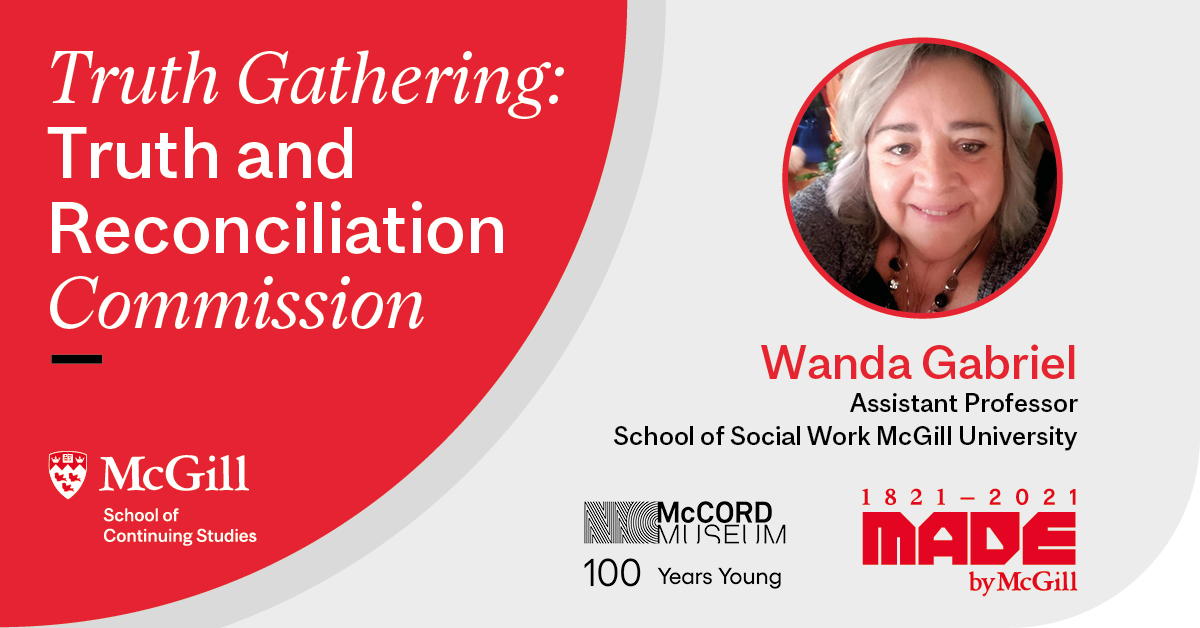
In connection with the McCord Museum exhibition: Indigenous Voices of Today: Knowledge, Trauma, Resilience.
Presented by Wanda Gabriel, Assistant Professor, Director of Indigenous Access McGill (IAM).
About Wanda Gabriel
Prof. Wanda Gabriel, is Assistant Professor at McGill University, School of Social Work. She has worked nationally on several projects such as the Aboriginal Healing Foundation, The Canadian Aboriginal Aids Network, National Parole Board of Canada, and the Truth and Reconciliation Commission. In her University role, she is the Co-Director for the Qualifying Year for Master of Social Work degree and the Co-Director of Indigenous Access McGill. She is presently involved with a research team composed of partners from Concordia University, Quebec Native Women and Elizabeth Fry Association. The project is to identify the rehabilitation needs of Indigenous women in Quebec’s provincial prison and to assess the institutional policies that support and constrain Indigenous women’s capacity for rehabilitation.
Fuelling Trauma into Action
Date: Thursday, October 7, 2021
Time: 12–1 p.m.
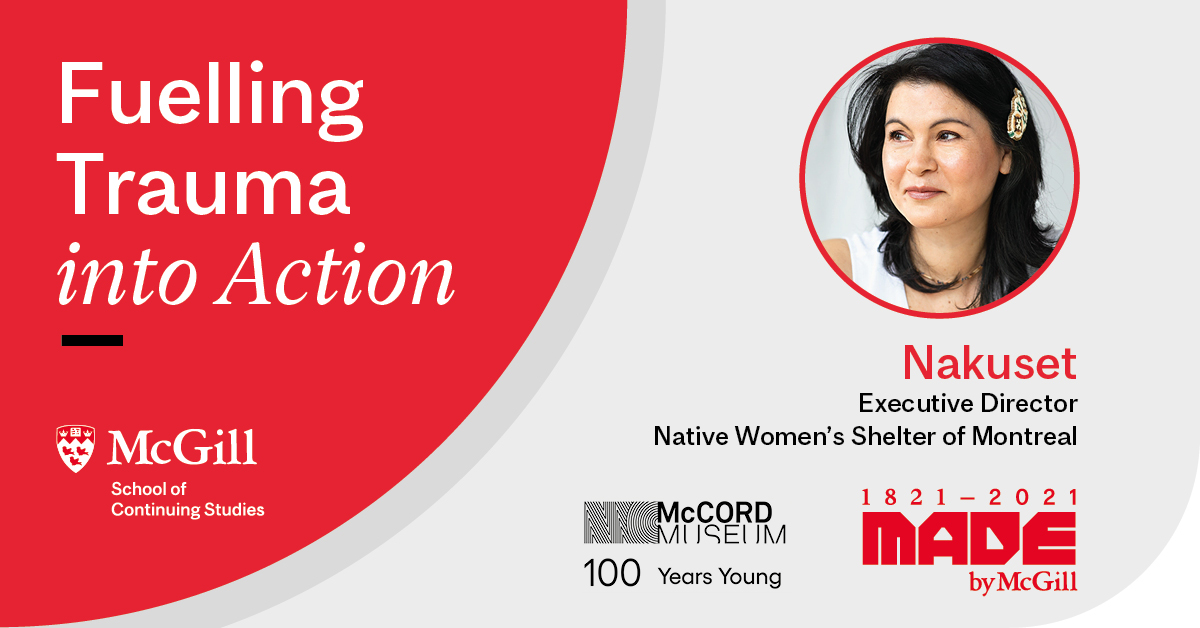
In connection with the McCord Museum exhibition: Indigenous Voices of Today: Knowledge, Trauma, Resilience.
Presented by Nakuset, Executive Director of the Native Women's Shelter of Montreal
About Nakuset
Nakuset, the Executive Director of the Native Women's Shelter of Montreal, is Cree from Lac la Ronge, Saskatchewan. She has three beautiful boys, Kistin, Mahkisis and Mahihkan. She was adopted by a Jewish family in Montreal and draws on her adoptee experience in her advocacy work for Indigenous children in care. Nakuset created, produced and hosted the television series Indigenous Power, she was voted “Woman of the Year 2014” by the Montreal Council of Women, and she is the Indigenous columnist for MaTV’s CityLife. Nakuset was featured in Real Talk on Race, the award-winning CBC series. In 2017, she was selected by the CKX City Series as a speaker/shift disturber due to the work she does to shift the status quo for urban Aboriginal women. In November 2017, she was a speaker for TEDxMontrealWomen. In 2018, she testified for 3 days at the Viens Commission, a public inquiry into the discrimination of Indigenous people of Quebec. She testified in June 2018 at the MMIW Inquiry in Calgary. In February 2019, she presented at WE Day. She was recently featured in the “End of 2010’s interview for Global” to discuss the past decade work with the urban Indigenous community. She is honoured to have spearhead and run the Cabot Square project since its inception and to co-found Resilience Montreal. She is dedicated to improving the lives of urban Indigenous people.
Reframing Indigenous Relations Through Economic Reconciliation
Date: Thursday, October 14, 2021
Time: 12–1 p.m.
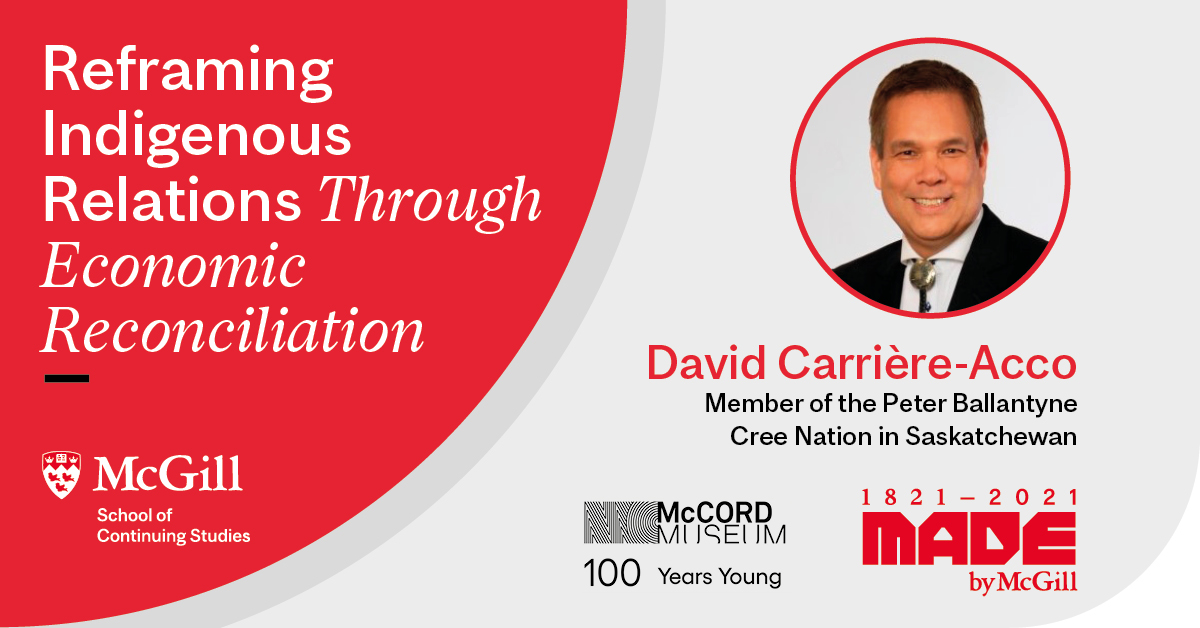
In connection with the McCord Museum exhibition: Indigenous Voices of Today: Knowledge, Trauma, Resilience.
Presented by David Carrière-Acco, member of the Peter Ballantyne Cree Nation in Saskatchewan
About David Carrière-Acco
David Carrière-Acco, is a member of the Peter Ballantyne Cree Nation in Saskatchewan. He holds an MBA (International Business Concentration), as well as graduate degrees in Marketing, eCommerce and Business Analysis. Since launching Acosys in 2006, David has established himself and Acosys as a premier Indigenous-led consulting firm specializing in facilitating constructive and respectful Indigenous engagement on behalf of governments, corporate clients, and non-governmental organizations. David has worked with Indigenous communities and organizations across Canada, garnering extensive experience in the design, implementation, and facilitation of successful Indigenous engagement initiatives.
In 2008, Julie and David created an Indigenous Internship Program which provides the opportunity for Indigenous people to work and be mentored on their client projects. This has earned Acosys numerous awards and newsworthy media articles. The program has been very successful to create opportunity to Indigenous people but also bring greater workplace diversity. Both Julie and David believe that critical part of Canada’s path to reconciliation with its Indigenous people is dependent inclusion in Canadian economy and workforce within a spirit of Nation-to-Nation relationship.
Today, David is passionate about the use technology combined with Indigenous Traditional Knowledge to develop environmental protection and climate adaptation solutions for all of Canada and continues his work to build Indigenous capacity especially in STEM professions. He also is a proud member of the Canadian Armed Forces Reserves as an officer in the Air Cadet program promoting development of Canada’s youth and interest in the aviation and aerospace.
Indigenous Artists and Different Styles of Art
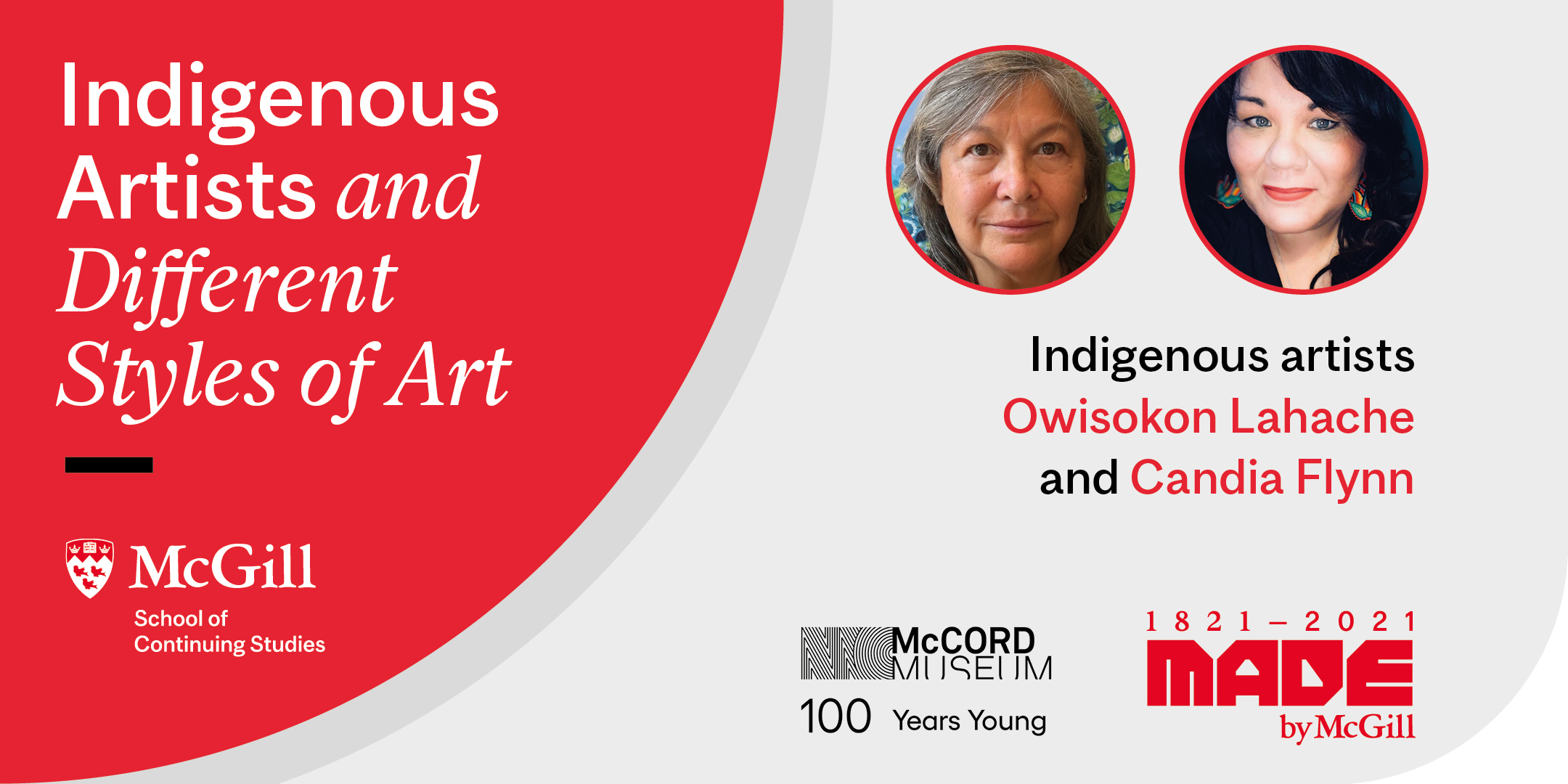
In connection with the McCord Museum exhibition: Indigenous Voices of Today
Presented by Owisokon Lahache and Candia Flynn. The event will be held in-person at the McCord Museum, but will also be livestreamed on YouTube.
About Owisokon Lahache and Candia Flynn
A friend of the McGill School of Continuing Studies’ Indigenous Relations Initiative, Indigenous artist, Owisokon Lahache from Kahnawake is Mohawk and her art is different from Inuit and other First Nations art. Owisokon meets First Nations work at the McCord Museum’s exhibition Indigenous Voices of Today and comments on her style of art compared to other styles by showcasing some of her pieces and her interest in corporate art design.
Owisokon’s friend Candia Flynn is Nipmuc and lives in Kahnawake. She is the founder of Healingstitches and will discuss storytelling clothing. Inspired by a person's vision, she designs clothing into wearable art to help people on their healing journey, while demonstrating resilience – a prominent theme of the Indigenous Voices of Today exhibit.
October 6, 2021 - Launch of the Indigenous Connection Circle
 My Traditional name is Koot-Ges, I come from Wilps Txaatkanlaxhatkw, of the Nisga’a Nation. I am also a descendant of the Tsimshian and Haida Nation. My English name is Patrika McEvoy, and im a new Alumni student from the Public Administration and Governance Program with the McGill School of Continuing Studies. I am a proud member of the Indigenous Relations Initiative team, and we have been working hard to plan, create and launch the Indigenous Connection Circle for students and Alumni of the McGill School of Continuing Studies. Launching this Fall 2021, we will have a cultural sharing space for us to gather and share our educational journey into a new realm of professionalism. This new initiative will be lead by students and Alumni for us to strengthen our community and foster a strong Network of support.
My Traditional name is Koot-Ges, I come from Wilps Txaatkanlaxhatkw, of the Nisga’a Nation. I am also a descendant of the Tsimshian and Haida Nation. My English name is Patrika McEvoy, and im a new Alumni student from the Public Administration and Governance Program with the McGill School of Continuing Studies. I am a proud member of the Indigenous Relations Initiative team, and we have been working hard to plan, create and launch the Indigenous Connection Circle for students and Alumni of the McGill School of Continuing Studies. Launching this Fall 2021, we will have a cultural sharing space for us to gather and share our educational journey into a new realm of professionalism. This new initiative will be lead by students and Alumni for us to strengthen our community and foster a strong Network of support.
This will be a monthly virtual gathering to take place on zoom, which will help students to ensure they have all the resources they need to be successful in their academic career. The Indigenous Connection Circle will be a stepping stone to resources, supports, and help students and alumni build a strong network. With cultural values, this will be a journey we can share together. Please join us on October 6th 2021 at 4pm EST for the first session of this beautiful adventure! To learn more, please reach at connectioncircle.scs [at] mcgill.ca.
September 29-October 2, 2021
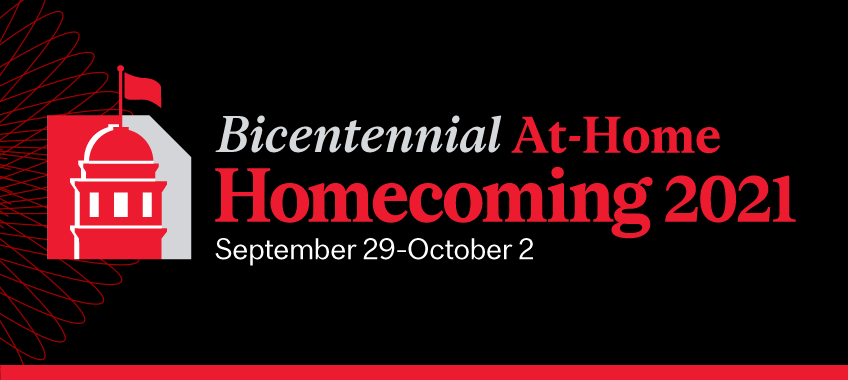
Bicentennial At-Home Homecoming 2021
We’ve gone to great lengths to make this year’s virtual edition of Homecoming extra special. After all, McGill is celebrating its Bicentennial – 200 years of amazing achievements with so much to look forward to in the next 200 years!
September 29, 2021

Barriers to Bridges: Preparing the Next Generation of Indigenous STEM Professionals
Join us for a discussion on how a blended traditional Western education and land-based STEM program will help build the next generation of Indigenous STEM (science, technology, engineering, and math) professionals.
June, 2021: National Indigenous History Month
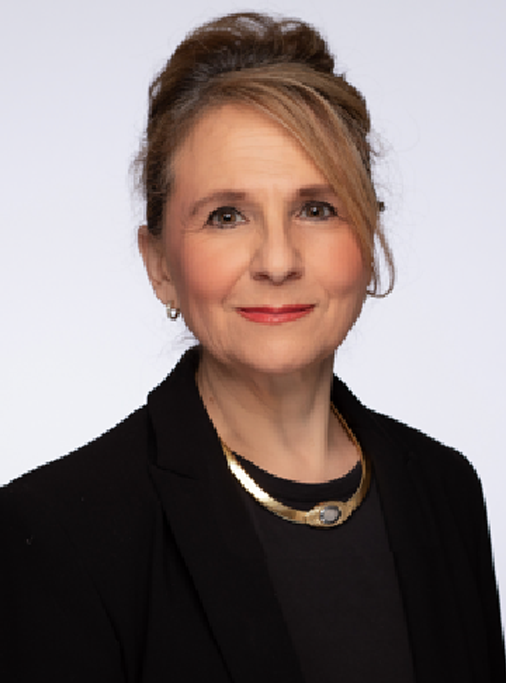
In the spirit of reconciliation, it is my pleasure to announce and welcome you to this year’s School of Continuing Studies National Indigenous History Month event series. This year our series will include talks and presentations from remarkable Indigenous speakers, educators, scholars, and professionals from across the country, who will share with us the history, culture, and stories of the Indigenous Peoples of Canada. I encourage you to join us and take this opportunity to learn more about First Nations, Inuit, and Métis Peoples. It is through learning and understanding that we can create change, envision new opportunities, and experience personal growth.
Dr. Carmen Sicilia
Associate Professor and Director of Indigenous Relations Initiative

Associate Professor and Director of Indigenous Relations Initiative
Kwe, Tansi, Ullukkut, Hawa’a, Bonjour, Hello.
In the spirit of reconciliation, it is my pleasure to announce and welcome you to this year’s School of Continuing Studies National Indigenous History Month event series. This year our series will include talks and presentations from remarkable Indigenous speakers, educators, scholars, and professionals from across the country, who will share with us the history, culture, and stories of the Indigenous Peoples of Canada. I encourage you to join us and take this opportunity to learn more about First Nations, Inuit, and Métis Peoples. It is through learning and understanding that we can create change, envision new opportunities, and experience personal growth.
Nia:wen, Meegwetch, Nakurmik, Merci, Thank you
Schedule
Weaving Reconciliation into your Course with Indigenous Pedagogy and HeutagogyPresented by Dr. Stryker Calvez & Mrs. Nazreen Beaulieu |
|||
| Date | Time | Description | |
| June 1 (Part 1) | 11:00 a.m. to 12:00 p.m. EST |
Reconciliation is a journey or learning path that supports a future that is inclusive, equitable and prosperous for all. All that is asked of you is a willingness to understand and rewrite the colonized truths that are harming society today. We invite you to join three 1-hour experiential learning workshops over lunch to explore your teaching philosophy as we consider how to rewrite it in relation to Indigenous pedagogy and Western heutagogy, two approaches that support student-centred learning. We will help you find your own path for supporting the Indigenous Peoples and the future generations of youth in Canada. |
Workshop is Full |
| June 3 (Part 2) | |||
| June 8 (Part 3) | 10:30 a.m. to 12:00 p.m. EST |
||
A Look at the Truth & Reconciliation CommissionPresented by Professor Wanda Gabriel MSW |
|||
| Date | Time | Description | |
| June 2 | 10:30 a.m. to 12:00 p.m. EST | The residential school era in Canada lasted over 100 years. Thousands of Indigenous children were harmed psychologically, physically, sexually and spiritually casting a soul wound across generations. For more than a decade survivor’s were making motions for legal and civil actions to be taken against the Canadian government and Churches. In 2007 a national agreement was made to compensate survivors for the harm done to children and families by church and state. The Settlement Agreement was reached. The Settlement Agreement included five different types of elements to address the legacy of Indian Residential Schools. In this session we will explore these elements. One of the elements is the Truth and Reconciliation Commission (TRC) which we will examine in detail. We will look at the process of this historical commission over their years of operation and how they carefully approached survivors to gather the stories. Particular focus will be on the calls to action and what this means for Canadians. Participants will be invited to explore, share views and find ways to engage in the calls to action via small breakout rooms. | |
Scarf Ceremony
|
|||
McGill SCS Convocation
|
Comment mieux comprendre le monde Autochtone pour mieux intervenir: valorisation identitaire et sécurisation culturellePresented by Mr. Pierre Picard |
|||
| Date | Time | Description | |
| June 15 | 10:30 a.m. to 12:00 p.m. EST | La culture n’est pas uniquement constituée d’une langue, de croyances et de pratiques. Elle comprend de multiples variables et se développe à partir de facteurs socio-historiques et de conditions générales de vie qui viennent notamment déterminer un processus relationnel complexe et des liens familiaux et communautaires très variés. Le développement de ses connaissances culturelles est le point de départ pour comprendre qu’il y a effectivement des différences entre la société dominante et les Autochtones. L’imposition d’un système d’éducation, de santé ou de justice dénudé du caractère distinctif propre aux Premières nations a eu et a encore des conséquences sur l’état de santé global des autochtones. On cerne de plus en plus les enjeux liés à la sécurisation culturelle comme étant une variable fondamentale dans le cheminement de vie des Autochtones. La conférence questionnera les pratiques de tout le réseau québécois et fournira des pistes de l’applicabilité du concept de sécurisation culturelle au profit des populations autochtones. | |
Impact of Climate Change on Food Security in Northern CanadaPresented by Dr. Robert Rabin |
|||
| Date | Time | Description | |
| June 17 | 10:30 a.m. to 12:00 p.m. EST | This presentation will highlight past and recent changes in climate and weather events and affects on indigenous communities. Examples include warming in the arctic, decreasing ice cover and permafrost, eroding coastlines, wildfires, floods and droughts, and impact on First Foods such Manoomin (wild rice), medicinal plants, and animal relatives. Increased variability in day-to-day weather has been noted in the Arctic, increasing the challenge of reliable forecasting traditional methods which rely on place-based observations. We will explore a few elements of traditional science of the Iñupiat people as evidenced in the descriptions of weather and ice in the Iñupiaq language. Aspects of this knowledge, such determining weather changes and impending storms will be compared to current approaches to weather and climate forecasting. New tools will be reviewed, such as Smart Ice and SIKU which may reduce the hazard of travel on thinning ice. | |
National Indigenous Peoples Day in Canada
|
Importance of Indigenous Language in the Justice SystemPresented by Mr. Don Nicholls M.S.M., B.A., LL.B, B.C.L, LL.M |
|||
| Date | Time | Description | |
| June 21 | 10:30 a.m. to 12:00 p.m. EST | The importance of language in the justice system cannot be understated. The integrity of the system depends on a clear understanding of the rules and processes by the parties involved. For Indigenous Peoples to have a fair and just treatment requires that they understand the rules, the processes and the fundamental principles of justice in another language. While the integration of Gladue reporting and other remedial measures can help move the marker closer to the goal of fair and just treatment of Indigenous defendants, much remains to be done to get us there. The over-representation of Indigenous Peoples in the legal and correctional systems continues to go beyond what then Minister Allan Rock called a National crisis 25 years ago, and Dr. Ivan Zinger reported on last year as having more than doubled. | |
Braiding Sweetgrass: Understanding Indigenous Resilience and Making Space for Indigenous Ways of ThinkingPresented by Mr. Alex Allard-Gray |
|||
| Date | Time | Description | |
| June 29 | 10:30 a.m. to 12:00 p.m. EST | In this interactive presentation, participants will have the opportunity to discuss and learn of ways to incorporate and create space for Indigenous ways of thinking into their work. Indigenous Resilience will be highlighted through examples pertaining to the presenter’s community, and how his Indigenous identity guides his work with Indigenous learners. | |
Biographies
Mr. Donald Nicholls
 Mr. Donald Nicholls is the Director of the Cree Nation Government (CNG), Department of Justice and Correctional Services since 2009. Prior to becoming Director, Mr. Nicholls was the Interim Director where he assisted with the establishment of the Department, and was an inaugural Member of the Cree-Quebec Judicial Advisory Committee when established in 2007. Mr. Nicholls stepped down from the Committee to become Director, and worked with the Committee and CNG. Previously, from 2005-2009, Mr. Nicholls worked as Political Attaché with the Executive Office of the Grand Council of the Crees (Eeyou Istchee) Cree Nation Government. Mr. Nicholls has a strong background in law and Indigenous issues, having served as the first Coordinator of Justice for the Cree Nation Government, worked with tribal courts, worked on Indigenous cases at mechanisms in the United Nations, Organization of American States, NAFTA, and in domestic court systems in Latin and North America.
Mr. Donald Nicholls is the Director of the Cree Nation Government (CNG), Department of Justice and Correctional Services since 2009. Prior to becoming Director, Mr. Nicholls was the Interim Director where he assisted with the establishment of the Department, and was an inaugural Member of the Cree-Quebec Judicial Advisory Committee when established in 2007. Mr. Nicholls stepped down from the Committee to become Director, and worked with the Committee and CNG. Previously, from 2005-2009, Mr. Nicholls worked as Political Attaché with the Executive Office of the Grand Council of the Crees (Eeyou Istchee) Cree Nation Government. Mr. Nicholls has a strong background in law and Indigenous issues, having served as the first Coordinator of Justice for the Cree Nation Government, worked with tribal courts, worked on Indigenous cases at mechanisms in the United Nations, Organization of American States, NAFTA, and in domestic court systems in Latin and North America.
Prof. Wanda Gabriel
 Prof. Wanda Gabriel, is Assistant Professor at McGill University, School of Social Work. She has worked nationally on several projects such as the Aboriginal Healing Foundation, The Canadian Aboriginal Aids Network, National Parole Board of Canada, and the Truth and Reconciliation Commission. In her University role, she is the Co-Director for the Qualifying Year for Master of Social Work degree and the Co-Director of Indigenous Access McGill. She is presently involved with a research team composed of partners from Concordia University, Quebec Native Women and Elizabeth Fry Association. The project is to identify the rehabilitation needs of Indigenous women in Quebec’s provincial prison and to assess the institutional policies that support and constrain Indigenous women’s capacity for rehabilitation.
Prof. Wanda Gabriel, is Assistant Professor at McGill University, School of Social Work. She has worked nationally on several projects such as the Aboriginal Healing Foundation, The Canadian Aboriginal Aids Network, National Parole Board of Canada, and the Truth and Reconciliation Commission. In her University role, she is the Co-Director for the Qualifying Year for Master of Social Work degree and the Co-Director of Indigenous Access McGill. She is presently involved with a research team composed of partners from Concordia University, Quebec Native Women and Elizabeth Fry Association. The project is to identify the rehabilitation needs of Indigenous women in Quebec’s provincial prison and to assess the institutional policies that support and constrain Indigenous women’s capacity for rehabilitation.
Dr. Robert Rabin
 Dr. Robert Rabin is a research meteorologist with National Oceanic and Atmospheric Administration (NOAA) at the National Severe Storms Lab in Norman Oklahoma and an Honorary Fellow at the Cooperative Institute for Meteorological Satellite Studies University of Wisconsin-Madison. He is an active member of the American Indian Science and Engineering Society (AISES), serving as a volunteer and science judge at conferences, an instructor at Iiisaġvik College (Itqiaġvik,Alaska), the Bureau of Indian Affairs (BIA) Water Resources Training Program, and the Native Youth Community Adaptation Leadership Congress in the U.S.. Robert has been engaged in learning the Iñupiaq language and is enrolled in the Iñupiaq Studies Program at Ilisaġvik College, Utqiaġvik (Barrow) AK.
Dr. Robert Rabin is a research meteorologist with National Oceanic and Atmospheric Administration (NOAA) at the National Severe Storms Lab in Norman Oklahoma and an Honorary Fellow at the Cooperative Institute for Meteorological Satellite Studies University of Wisconsin-Madison. He is an active member of the American Indian Science and Engineering Society (AISES), serving as a volunteer and science judge at conferences, an instructor at Iiisaġvik College (Itqiaġvik,Alaska), the Bureau of Indian Affairs (BIA) Water Resources Training Program, and the Native Youth Community Adaptation Leadership Congress in the U.S.. Robert has been engaged in learning the Iñupiaq language and is enrolled in the Iñupiaq Studies Program at Ilisaġvik College, Utqiaġvik (Barrow) AK.
Mr. Alex Allard-Gray
 Mr. Alex Allard-Gray is a member of the Listuguj Mi’gmaq First Nation located in the Gaspé region of Quebec. From a young age, Alex came to understand the importance of higher education in the Indigenous community and was always encouraged to be an ambitious learner. Alex’s initial exposure to post-secondary education began with his participation in the 2006 Eagle Spirit High Performance Camp hosted at McGill University. This would have a lasting effect on him, as he chose to complete his B.Sc. in Physiology and Kinesiology at McGill. Alex remained involved with the Eagle Spirit Camp throughout his undergraduate studies, while participating in other Indigenous-led initiatives. This would include acting as President of the McGill Chapter of the Canadian Indigenous Science and Engineering Society.
Mr. Alex Allard-Gray is a member of the Listuguj Mi’gmaq First Nation located in the Gaspé region of Quebec. From a young age, Alex came to understand the importance of higher education in the Indigenous community and was always encouraged to be an ambitious learner. Alex’s initial exposure to post-secondary education began with his participation in the 2006 Eagle Spirit High Performance Camp hosted at McGill University. This would have a lasting effect on him, as he chose to complete his B.Sc. in Physiology and Kinesiology at McGill. Alex remained involved with the Eagle Spirit Camp throughout his undergraduate studies, while participating in other Indigenous-led initiatives. This would include acting as President of the McGill Chapter of the Canadian Indigenous Science and Engineering Society.
Mrs. Nazreen Beaulieu
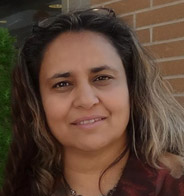 Mrs. Nazreen Beaulieu is a graduate of the Educational Technology and Design (ETAD) M.Ed. program at the University of Saskatchewan and has worked as an instructional designer in several capacities over the years. She later worked as an e-Instructor and course developer for a virtual school that provided distance education courses to Northern Canadian Indigenous communities and homeschooler. She worked on a SSHRC funded assignment that explored how older adults use online personal learning networks (oPLNs) to support their self-directed, lifelong learning goals. Her experiences have consolidated a passion for eLearning, self-directed learning and blended/networked learning environments that bridge the gap between formal and informal learning.
Mrs. Nazreen Beaulieu is a graduate of the Educational Technology and Design (ETAD) M.Ed. program at the University of Saskatchewan and has worked as an instructional designer in several capacities over the years. She later worked as an e-Instructor and course developer for a virtual school that provided distance education courses to Northern Canadian Indigenous communities and homeschooler. She worked on a SSHRC funded assignment that explored how older adults use online personal learning networks (oPLNs) to support their self-directed, lifelong learning goals. Her experiences have consolidated a passion for eLearning, self-directed learning and blended/networked learning environments that bridge the gap between formal and informal learning.
Dr. Stryker Calvez
 Dr. Stryker Calvez is a Metis/Michif researcher and educator from the Red River territory around Winnipeg. Over the last 20 years he has worked extensively with provincial governments, post-secondary institutions, organizations and communities to better understand how to implement and/or improve educational, social support, and health programming for Indigenous Peoples, newcomers and vulnerable populations. He has been recognized for his contributions to these communities, supporting diversity and inclusion management, facilitating effective intergroup relations, and supporting reconciliation in Canada. Currently he is the Manager of Indigenous Education Initiatives at the University of Saskatchewan
Dr. Stryker Calvez is a Metis/Michif researcher and educator from the Red River territory around Winnipeg. Over the last 20 years he has worked extensively with provincial governments, post-secondary institutions, organizations and communities to better understand how to implement and/or improve educational, social support, and health programming for Indigenous Peoples, newcomers and vulnerable populations. He has been recognized for his contributions to these communities, supporting diversity and inclusion management, facilitating effective intergroup relations, and supporting reconciliation in Canada. Currently he is the Manager of Indigenous Education Initiatives at the University of Saskatchewan
M. Pierre Picard
 M. Pierre Picard est membre de la Nation Huronne-Wendat. Il possède une formation en approche d’intervention psycho-corporelle et une maîtrise en sexologie clinique et s’est d’abord spécialisé en matière d’agression sexuelle chez les Premières Nations du Québec. Il dirige depuis plusieurs années le Groupe de recherche et d’interventions psychosociales en milieu autochtone (GRIPMA). Conférencier, formateur, chercheur et superviseur clinique, il a conduit plusieurs travaux portant exclusivement sur les problématiques psychosociales en milieu autochtone et des moyens de guérison tenant compte des différences culturelles et identitaires propres aux Premières Nations du Québec.
M. Pierre Picard est membre de la Nation Huronne-Wendat. Il possède une formation en approche d’intervention psycho-corporelle et une maîtrise en sexologie clinique et s’est d’abord spécialisé en matière d’agression sexuelle chez les Premières Nations du Québec. Il dirige depuis plusieurs années le Groupe de recherche et d’interventions psychosociales en milieu autochtone (GRIPMA). Conférencier, formateur, chercheur et superviseur clinique, il a conduit plusieurs travaux portant exclusivement sur les problématiques psychosociales en milieu autochtone et des moyens de guérison tenant compte des différences culturelles et identitaires propres aux Premières Nations du Québec.